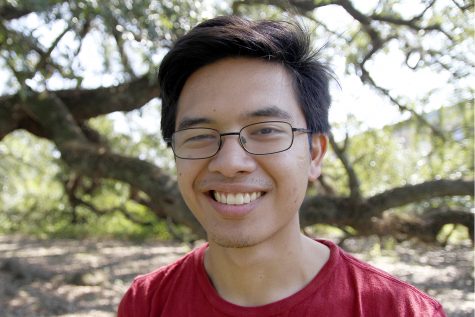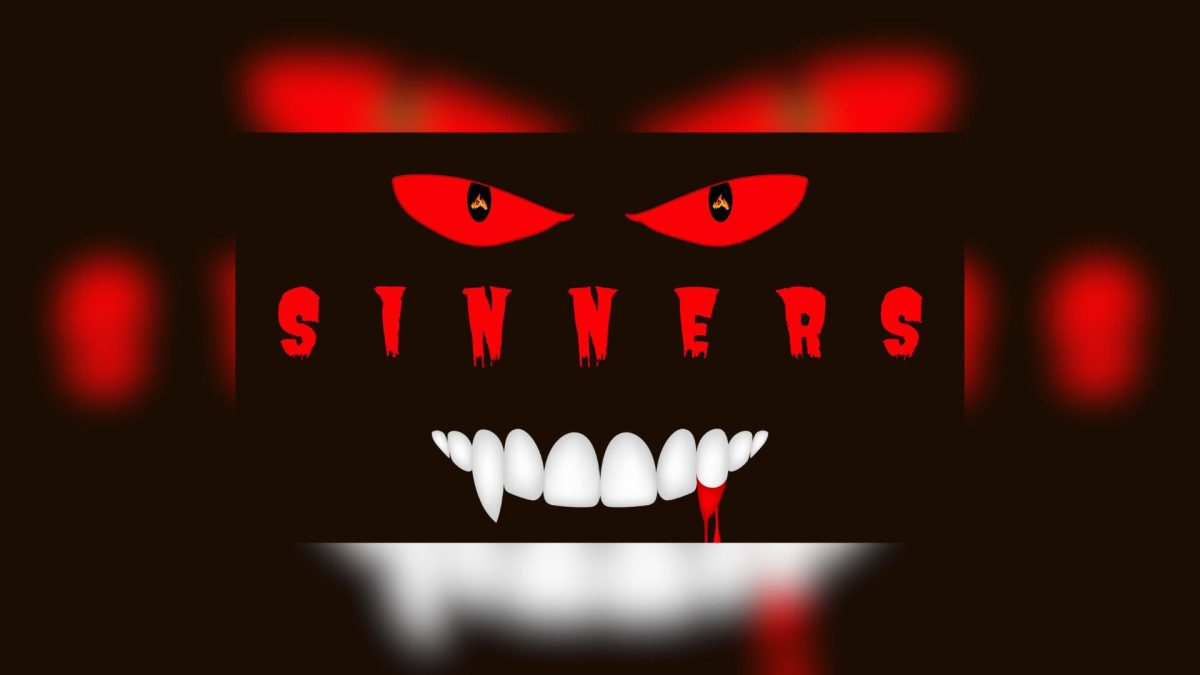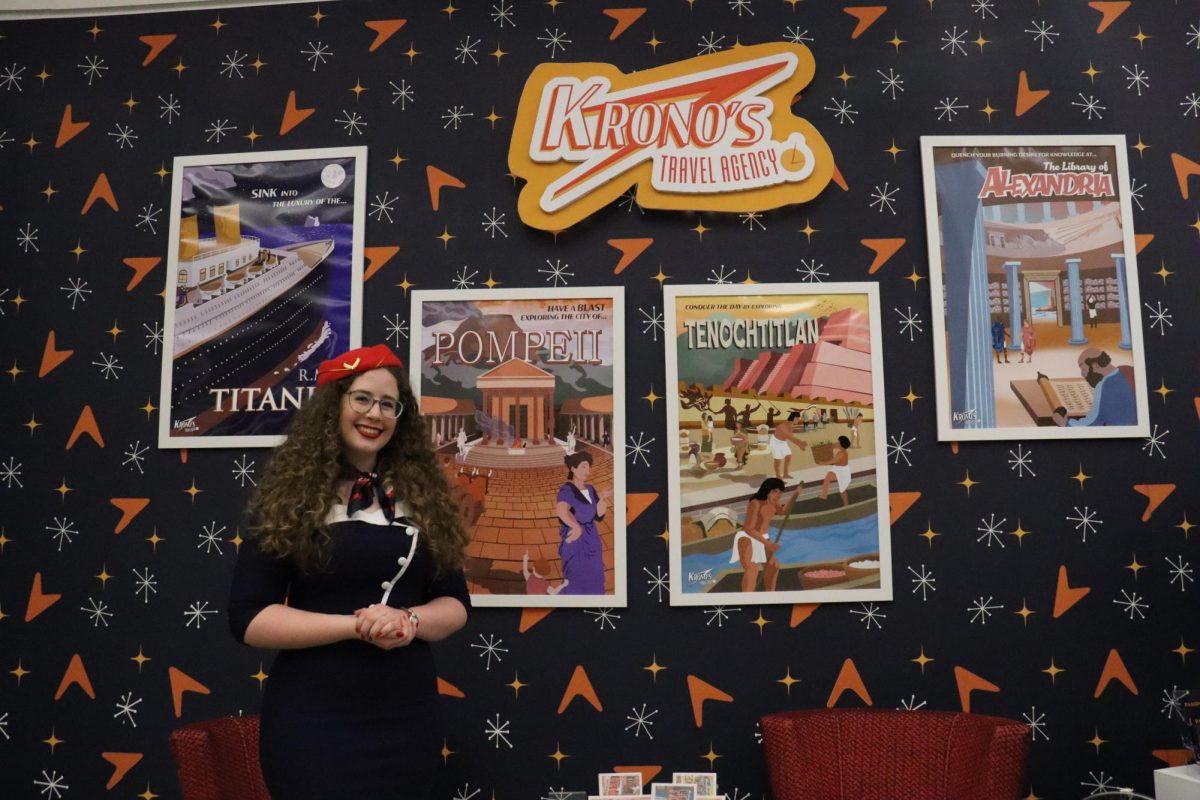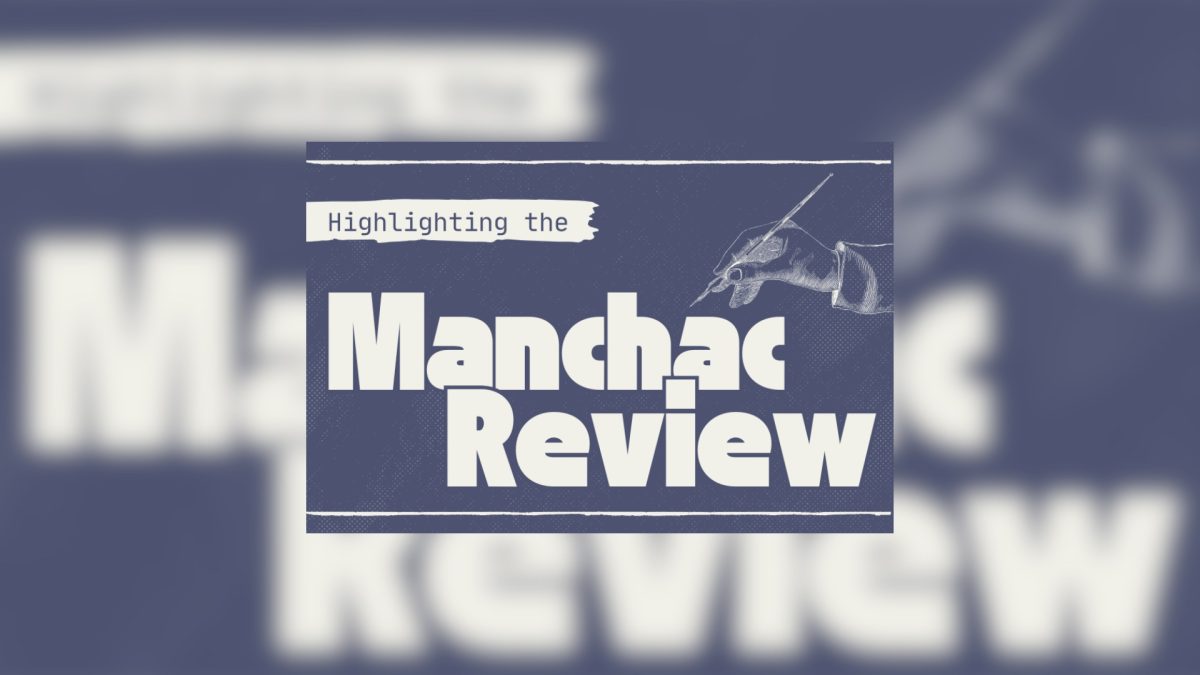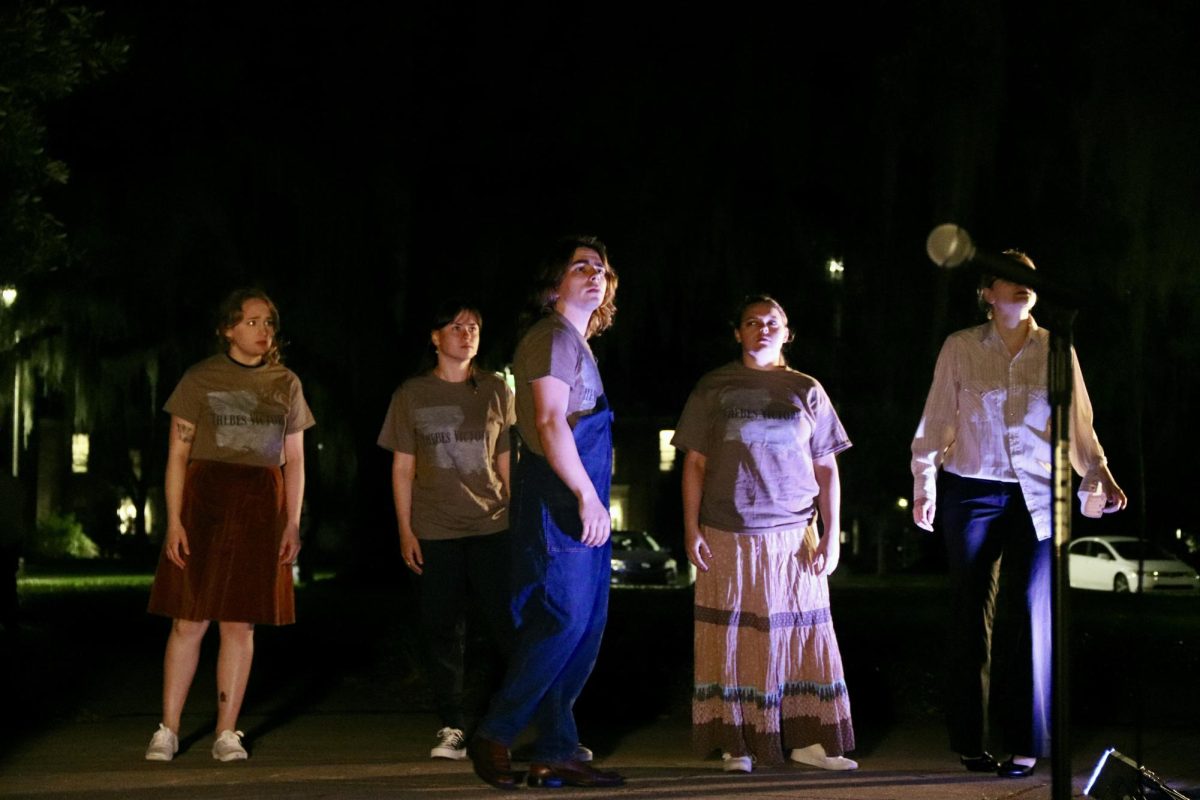
Guest artist Mary Fettig performs alongside the university Jazz Ensemble for the 17th annual “Bill Evans Jazz Festival.” Zachary Araki/The Lion's Roar
Jazz swept through the Pottle Music Building with concerts and master classes to honor the 1950 alumnus and seven-time Grammy award winner Bill Evans.
The festival included performances from the Alumni Jazz Ensemble and the Faculty Jazz Trio with guest artist Mary Fettig as well as high school groups for the Louisiana Association for Jazz Education State Music Festival for the 17th annual “Bill Evans Jazz Festival.”
“What I think some people forget is that in the ‘70s and ‘80s, the jazz program here, even though there wasn’t a formal jazz degree, there were several really, really great players that came out of this school that are now working professionals in the New Orleans area and other parts of the country,” said Lecturer of Percussion Michael Brothers.
Saxophonist Kyle Herrera performed with the university Jazz Combo on April 12 in the Pottle Music Building Recital Hall.
“I think that everything came together in the end like it usually does for us, spent a lot of time over the past couple months really working on all this,” said Herrera. “The guys that wrote tunes did really well. The flute player that joined us did really good. It’s been a really nice time learning all this music, being able to pay homage to who was probably one of the greatest jazz musicians to ever live, go to the same school as him.”
Brothers discussed the talent that can be seen in the university’s alumni.
“You saw it in the alumni band concert,” said Brothers. “There were several people in the band Wednesday night that were from that generation of players that we heard in the late 70s and 80s. They just sounded great, and I would like to see that come back here.”
The festival also served as a recruitment tool for getting potential students interested in the jazz studies concentration that will be offered in the fall 2018 semester.
Brothers said, “They’re gonna be very integral to helping us build that degree program. So, they’re essentially gonna become the founders of that program, which is a really unique opportunity because that gives them a legacy that we’re the ones that help start the program. We were the first group of students to be part of this and to take this program forward, and that will set the tone for the rest of it. There are a lot of great students in this state that if we can get some of them to really consider coming here and taking part in that degree, they really could create a legacy.”
Herrera shared his thoughts on the annual festival.
“It is really important for the school and the music program,” said Herrera. “It helps uplift the program once a year to look forward to paying tribute to a great figure who came from Southeastern. It allows us to recruit really well for high schoolers who are interested in the program.”
Junior music major and flutist Maryssa Chartier discussed the significance of the festival.
“It’s a super important part of the history here,” said Chartier. “Bill Evans is a really famous jazz player who went here, so we use the festival to celebrate that, and this year we have a lot of high schools coming. They started up a jazz program that’s gonna start in the fall. We’re using this as recruitment right now, so we’re trying to put on this big festival. That way we can build up the program when it comes around next semester.”
According to Brothers, Evans changed how the piano was approached in jazz.
“Certain key individual soloists started to take the piano in different directions and expand the instrument, and those individuals influenced Evans, but in a really, really general context, the piano was a timekeeping instrument,” said Brothers. “Bill’s influence helped make the piano much more of a solo instrument within the jazz setting. He opened up the context in how it could be viewed, especially harmonically.”
Brothers discussed Evans’ influence on the piano’s use in the jazz trio.
“The pianist is not only the melody, the soloist, all harmonic things that are going on, and Bill’s contribution, he really revolutionized how the piano was used in that kind of trio setting,” said Brothers. “It was groundbreaking, which is why his trio recordings were so revolutionary and so important in the development of jazz, especially in the ‘50s and ‘60s.”
Herrera shared what he enjoys about jazz.
“I love jazz because it’s free,” said Herrera. “It’s called ‘hot music’ originally whenever it was made, and it allows for me to express how I feel, the side of me that I don’t get to show too often but I get to convey on stage. I love performing because it’s a way for me to really let loose, allow people to connect with me on a different level than I can convey through words.”
Brothers discussed the influence of the university, especially the teaching Evans received from Gretchen Magee.
“There was a theory teacher here in the 1940s that was a huge influence on him on how he viewed things harmonically,” said Brothers. “To the end of his life, he talked about how much of a significant influence she was on him, and how he structured things harmonically when playing the piano in the writing that he did, the tunes he wrote.”


